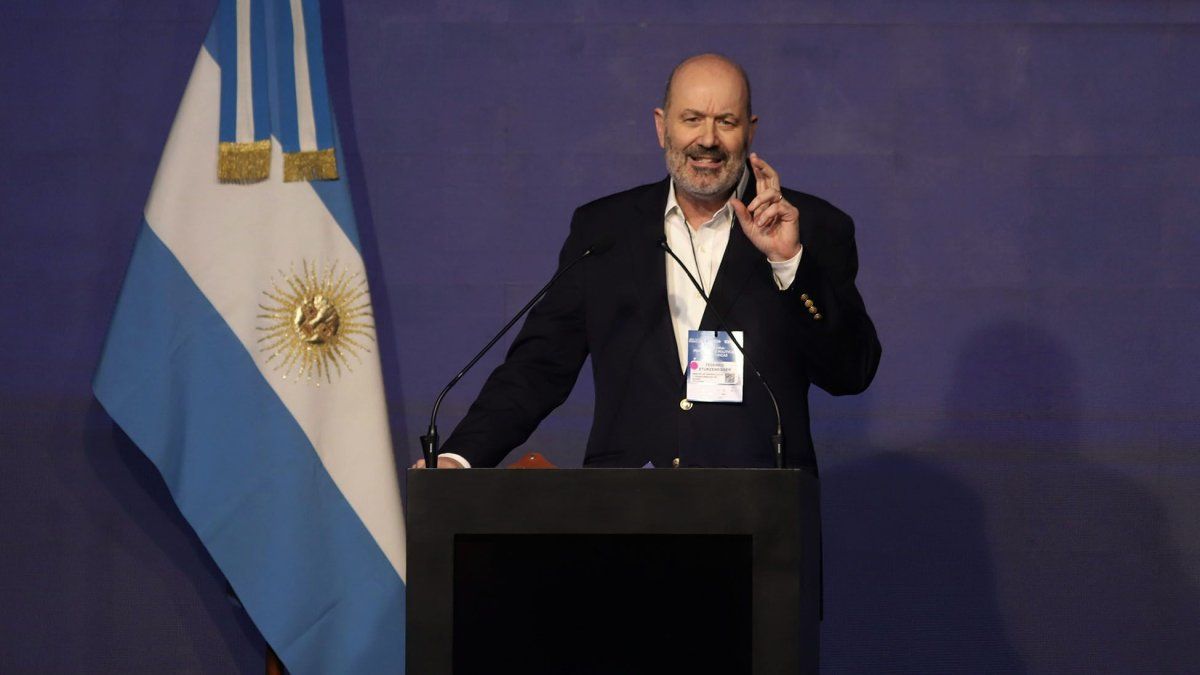The Minister of Deregulation and State Transformation, Federico Sturzenegger, anticipated in the last few hours that this week the chapter of the labor reform of the Bases Law, among other measures that the Executive is working on.
The minister assured that “The Ley Bases was the law that was debated the longest in the history of Argentina.” “The result is extremely generous on the part of Congress in the powers it granted us to reform the State. It has given Milei a lot of freedom so that in this first year there is an important reform in the structure of the State.”Sturzenegger added in televised statements.
Let us remember that the law Bases It was approved at the end of June by the Chamber of DeputiesThe labor chapter, referred to in the text of the law as “Labor Modernization,” contains important changes in the rules of hiring and in the relationship between employees and their employers.
Ley Bases: this is the labor reform approved in Congress
Labor Laundering
Between articles 76 and 81, under the title “Promotion of registered employment”, a series of benefits for employers in case of regularize their workers. Regarding the latter, he clarifies that “whatever their seniority and salary, You may only have up to 5 years of contributions credited, calculated on the amount of the minimum, vital and mobile salary, for the purposes of recognition for your retirement.” Among the benefits The benefits granted include the extinction of criminal prosecution provided for in the Tax Criminal Law, the forgiveness of infractions and sanctions, the removal from the Register of Labor Sanctions (REPSAL) and the forgiveness of debts for capital and interest. This last benefit will apply with a minimum of 70% forgiveness, with additional incentives for micro, small and medium-sized enterprises (MiPyMEs).
Severance pay
In article 93 of the reform, it is enabled that, through collective labor agreements, replace severance pay with the creation of a severance fund or systemEmployers may choose to hire a private service or self-insure.
Extension of the trial period
Articles 89 and 95 propose extend the trial period to 6 months that workers have in a new position. In addition, by collective agreement it can be extended up to 8 months in companies with between 6 and 100 employees and up to 1 year In smaller companies (up to 5 employees), during this period, the employee may be dismissed without cause and without compensation for seniority.
Pension rights
Workers who are regularized by their employers will be able to compute up to 60 months of pension contributions, even if they have worked more years informally. These five years will not be considered for the calculation of the initial retirement pension.
Flexibility of labour relations
Measures are also included that allow employment relationships to be framed in forms other than the conventional employment relationship. For example, hiring employees under the modality of collaborators or rental contracts. The law expressly excludes contracts for work, services and agency from the Employment Contract Law (LCT), regulating them instead by the Civil and Commercial Code. This limits the presumption of an employment relationship, which is subject to proof in each case.
New causes for dismissal
They are incorporated as reason for dismissal of the workers the different actions that can be carried out within the framework of a collective conflict in the company. This would be, for example, participate in blockades or takeovers of establishments; obstruction of entry or exit to the establishment and the affectation of the freedom of work of those who do not adhere to the strike measure.
Special compensation for discriminatory dismissal
The new legislation establishes an additional compensation of between 50% and 100% of the compensation for seniority in cases of dismissal due to discrimination. This change eliminates the possibility of the court ordering the reinstatement of the worker in his or her position, limiting compensation to monetary compensation.
Labor outsourcing
The ban on employers hiring through temporary service companies or placement agencies is eliminated in the case of agricultural work. In all cases, employees will be considered part of the intermediary companies and not for those who provide services.
Functioning of unions
Article 84 excludes trade union associations as possible whistleblowers of the lack of registration of employment relationships, leaving this solely in the hands of the worker. In this way, the lack of registration can be reported to the enforcement authority, which must establish an electronic means before AFIP.
Maternity leave
Under current legislation, maternity leave is 90 days45 days before delivery and 45 days after. However, the pregnant person may choose to reduce the pre-delivery leave to 30 days – the period after which the prohibition to work applies – and accumulate the remaining days to the post-delivery period.
The changes that the labor reform underwent after the second version of the Bases law
The section of the Bases law that modifies employment relationships It underwent certain modifications with respect to the first version of the initially called “omnibus project”.
In this case, the Government of Javier Milei presented a less ambitious labour reform and eliminated issues related to money laundering and moratorium for those companies that regularise the employment situation of their workers.
After meetings, negotiations and debates in committees, the Title V called “Modernization of the workplace“, included in the new law Baseswas transformed into a 17-article reform of the labor legislation. The section contains various modifications to the draft Employment Law No. 24,013.
Source: Ambito




